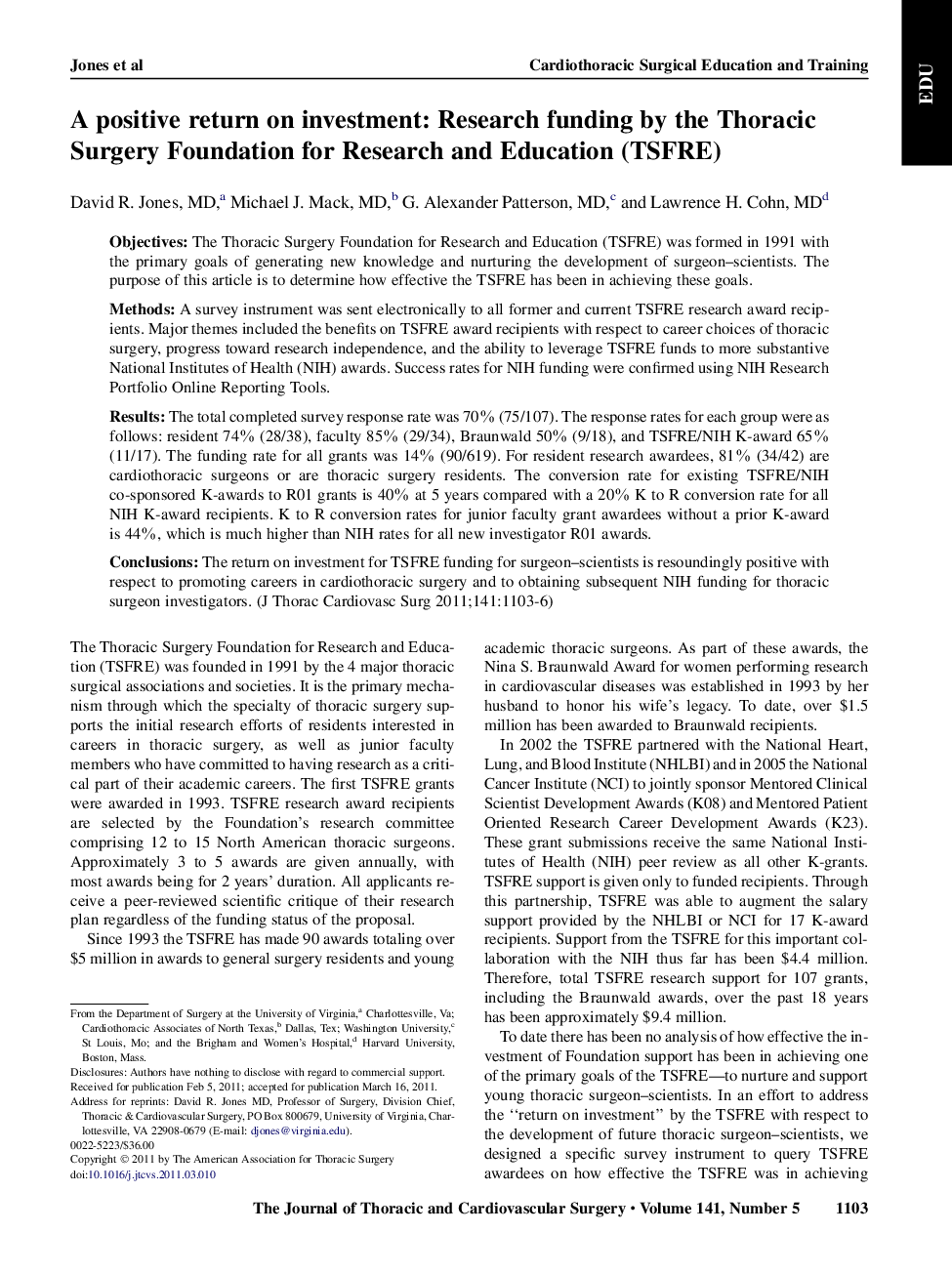| Article ID | Journal | Published Year | Pages | File Type |
|---|---|---|---|---|
| 5992110 | The Journal of Thoracic and Cardiovascular Surgery | 2011 | 4 Pages |
ObjectivesThe Thoracic Surgery Foundation for Research and Education (TSFRE) was formed in 1991 with the primary goals of generating new knowledge and nurturing the development of surgeon-scientists. The purpose of this article is to determine how effective the TSFRE has been in achieving these goals.MethodsA survey instrument was sent electronically to all former and current TSFRE research award recipients. Major themes included the benefits on TSFRE award recipients with respect to career choices of thoracic surgery, progress toward research independence, and the ability to leverage TSFRE funds to more substantive National Institutes of Health (NIH) awards. Success rates for NIH funding were confirmed using NIH Research Portfolio Online Reporting Tools.ResultsThe total completed survey response rate was 70% (75/107). The response rates for each group were as follows: resident 74% (28/38), faculty 85% (29/34), Braunwald 50% (9/18), and TSFRE/NIH K-award 65% (11/17). The funding rate for all grants was 14% (90/619). For resident research awardees, 81% (34/42) are cardiothoracic surgeons or are thoracic surgery residents. The conversion rate for existing TSFRE/NIH co-sponsored K-awards to R01 grants is 40% at 5 years compared with a 20% K to R conversion rate for all NIH K-award recipients. K to R conversion rates for junior faculty grant awardees without a prior K-award is 44%, which is much higher than NIH rates for all new investigator R01 awards.ConclusionsThe return on investment for TSFRE funding for surgeon-scientists is resoundingly positive with respect to promoting careers in cardiothoracic surgery and to obtaining subsequent NIH funding for thoracic surgeon investigators.
